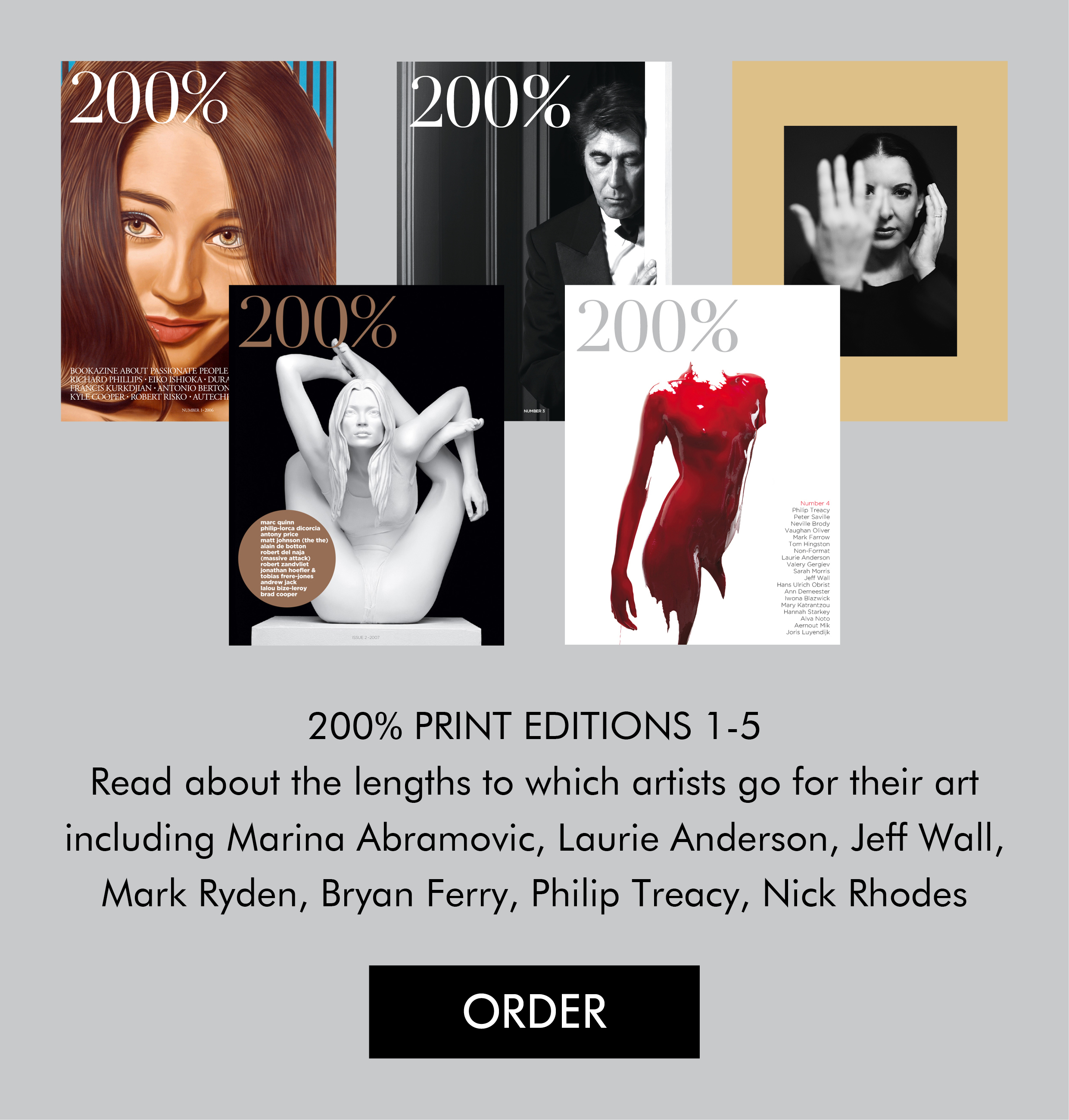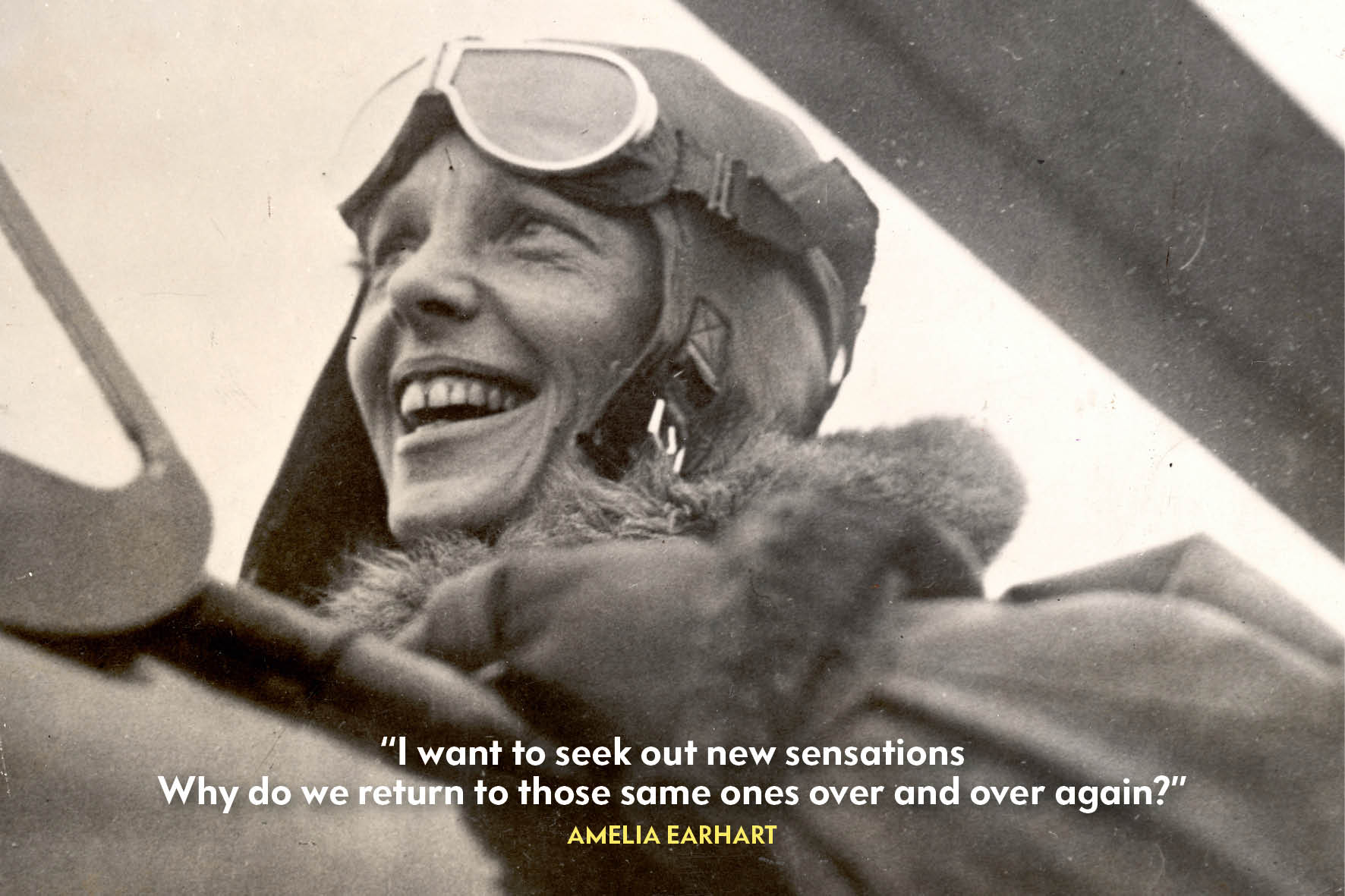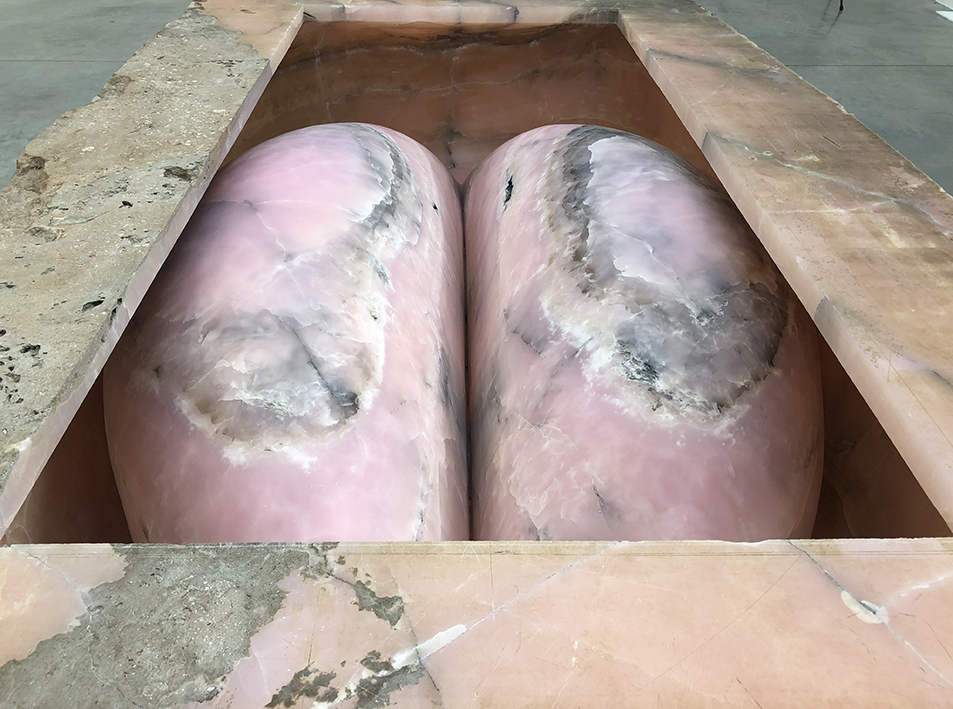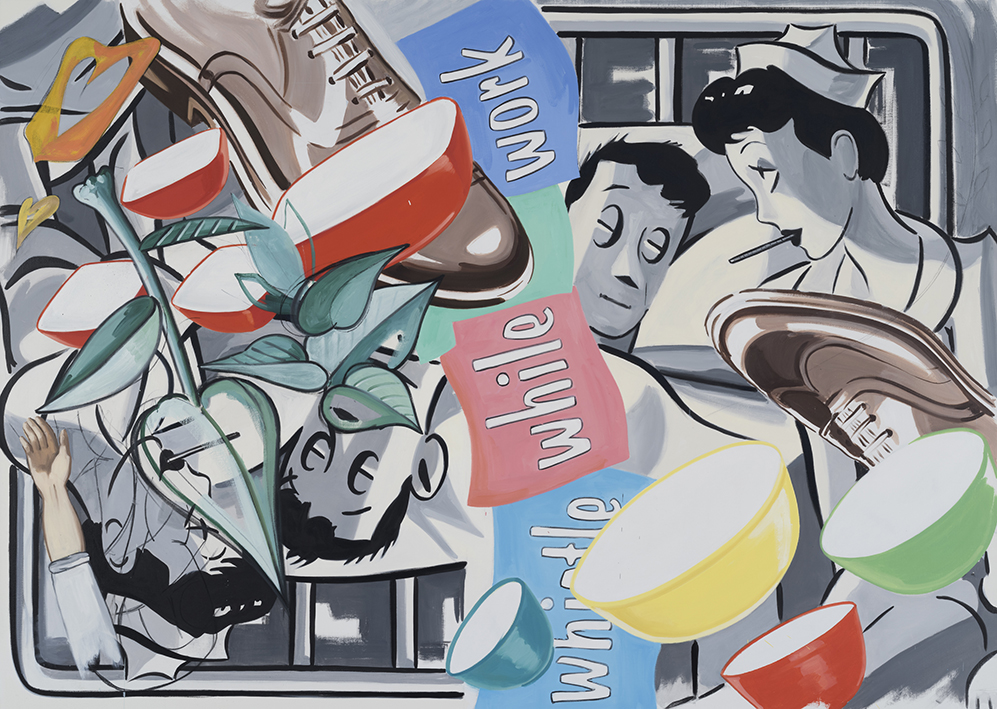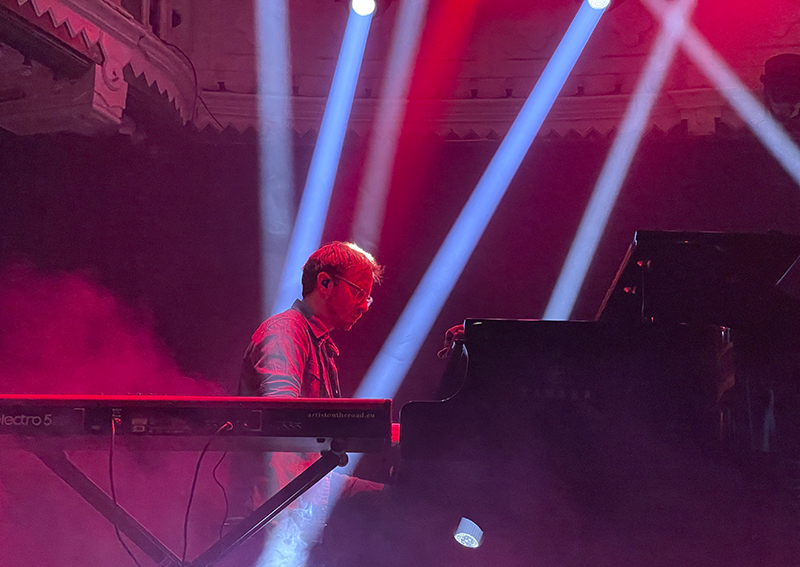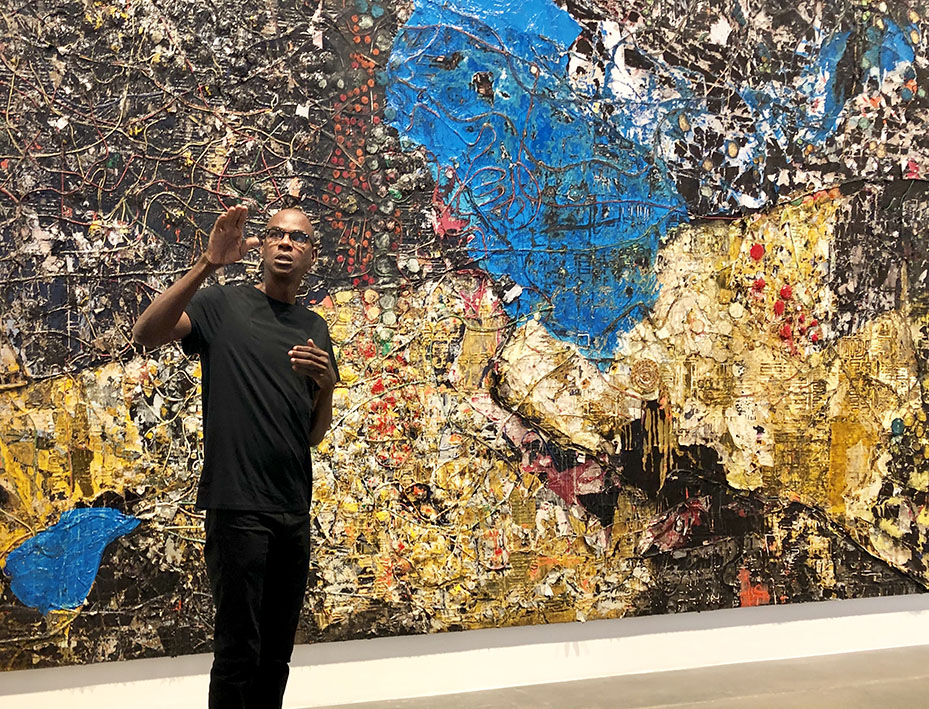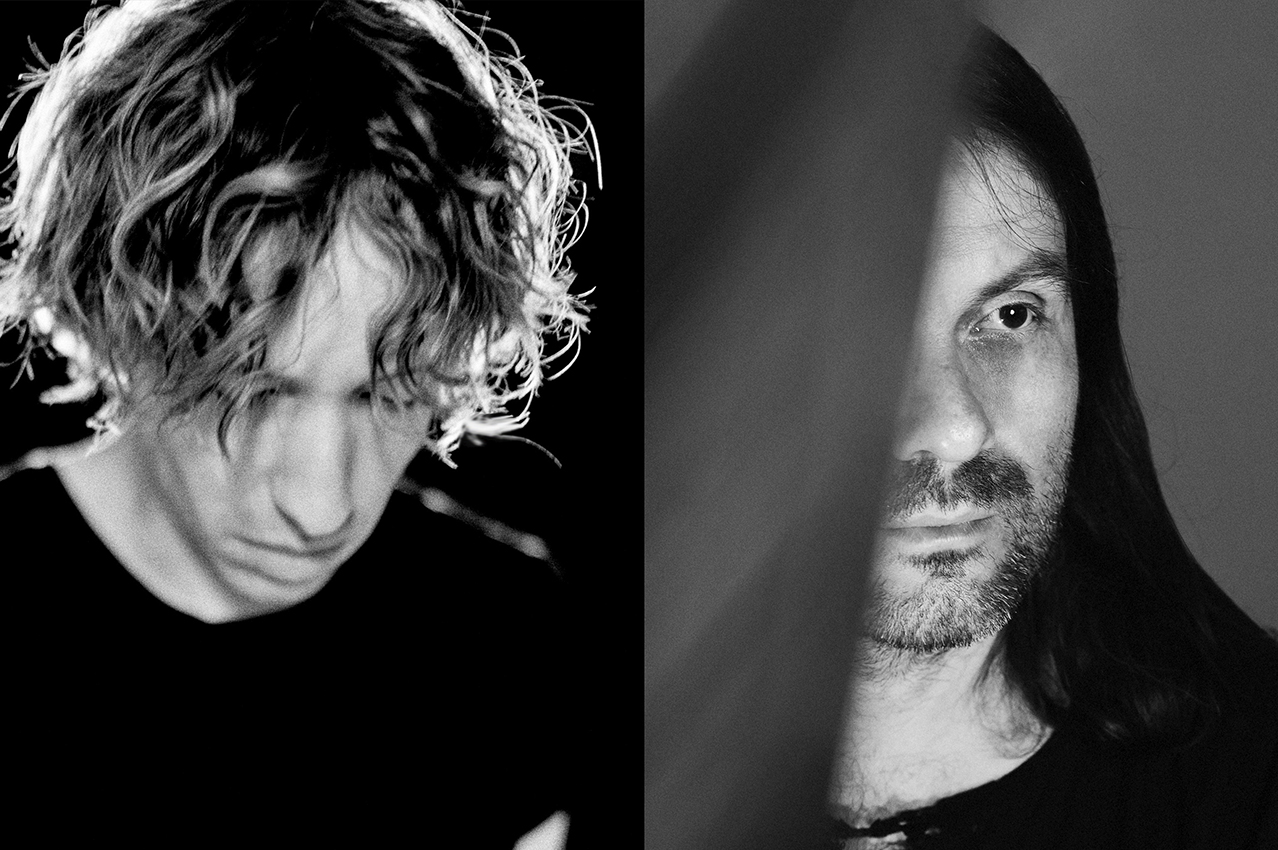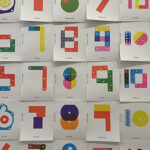
Music Emily Kokal – Warpaint
“We wanted ‘Heads Up’ to embody the same spirit when watching us perform live”, says Emily Kokal on Warpaint’s new album. 200% spoke with the vocalist and guitarist of the band about their new ‘dancier’ album, the maturation of the band, her personal lyrics, the joy of playing live and their rich vocal harmonies.
200%: Compared with your previous albums, ‘Heads Up’, seems less moody, but like its title, more uplifting, with catchy pop songs. Is that a reflection of the current mindset of the band?
Emily Kokal: We were not trying to make a ‘poppier’ album but a ‘dancier’ album. What I mean with dancier is faster BPM. When we get together and play music we fall into our natural rhythm which is about 98 BPM – it is very comfortable for us. This time we wanted to make a dancier album but we didn’t want to lose any of the qualities that define us. I don’t think that we are capable of not sounding like us. ‘New Song’, definitely has a pop feeling to it, but it really started more like a disco song. If you speed Jenny Lee’s [Lindberg] bass line up they are often really funky and totally disco. Our new album, though, wasn’t really a huge departure for us, it was just faster rhythms.
200%: Some of the songs you wrote for the new album have a chorus.
EK: Yes. Many of the songs that Theresa [Wayman] writes and sings have choruses and it was the first time I started to write songs with a chorus. It was really fun to challenge myself and to do something different.
200%: Jenny Lee has commented that ‘Heads Up’ sounds like a mature version of Warpaint. To me, though, Warpaint always sounded mature.
EK: I think where she is coming from is that we have always felt our way through song structures or just started to jam. However, in the process of our new album we were a little bit more organised. When we did the songs with traditional song structures – the songs with choruses – we worked succinctly and maturely with each other.
Also, I think what Jen is talking about is that we kind of honed in on certain things that we do, but now we had a little more direction. For us, we maturated in the way we worked and processed together.
 200%: We write about the lengths to which artists go for their art. Could you tell me how far you go for your art, in your case, your music?
200%: We write about the lengths to which artists go for their art. Could you tell me how far you go for your art, in your case, your music?
EK: I guess making music – especially song writing and lyric writing – is for me, a by-product of an expression of just being alive. I have been using words and my voice to express feelings that were going on within me. It opened me up to myself.
200% Can you recall when you started to write lyrics?
EK: When I was about fifteen. Song writing is a form of release which I sometimes experience with drawing or dancing. Once I discovered that release I felt I no longer had a choice but to become a musician. I share that same spirit with my band members. With our music we come from an incredibly pure place. It isn’t really about pleasing anyone outside of the band; it is not about making money. It is about really connecting with each other. Also about losing yourself and connecting to something greater.
200%: What do you mean?
EK: The band is a really good microcosm of offering yourself to something greater, especially sharing it with three other women who are equally as creative and inquisitive as I. I offer myself to a collective instead of serving my own ego. By offering and sharing, it enables us to create something powerful with each other.
200%: In your lyrics you write about your intimate personal feelings. Has that always been the case since you first started to write lyrics?
EK: Yes, it has. I am trying to express something in words as accurately as I can which is really difficult to do. Sometimes, I like to write lyrics that are a bit mysterious and let people interpret them as they please. I want it to work like an abstract painting; I don’t want to give away too much. In my lyrics, I divulge many things which are extremely personal. It makes you feel incredibly vulnerable to share that much of yourself, but it is usually the stuff that hits the spot for me to express. Revealing myself through my lyrics feels like a release. It feels as though I am not hiding anything – it’s a healthy challenge.
200%: Over time have your lyrics become more or less personal?
EK: When I was younger, I went through a phase where I wrote about extremely personal stuff. I listened to Elliott Smith, Cat Power, old Folk and Country music quite a bit. Many of these musicians were sharing their personal feelings as it felt like a release for them. That’s why they had to write the song. They had all these feelings within them that had to come out. That is where I started when I started writing songs.
Then I went through a phase – especially when we started the band and we were getting some attention – where I became more protective of my personal feelings and personal life. When the song was about someone, I somehow wanted to protect them. I didn’t want people to know how I felt about these relationships I had. However, it didn’t feel like a release any longer. I was halting the flow that comes naturally from me.
200%: When you compose a song do you start with the lyrics, a guitar riff or a melody in your head?
EK: It changes. I wrote the lyrics of ‘The Stall’ before I ever wrote any music. That is not the norm, the way that I do it. We came into the studio and we said let’s try something new today. We started jamming and Jen had a bass-line idea. I opened my notebook, sang the lyrics and it came out immediately because the lyrics were already written. It was a new way of doing things and it worked out really great. Usually I have a riff or a guitar part and I start singing a melody. Sometimes the lyrics come out all at once; sometimes I have to craft the lyrics around a melody idea. I like to try to write the lyrics in the moment when I’m writing the song because that is the moment that I’m feeling it.
 200%: Your live concerts are very vivid, energetic and exuberant. You also have a loads of fun on the stage together. Could you talk about the joy of playing together as a band at a live concert?
200%: Your live concerts are very vivid, energetic and exuberant. You also have a loads of fun on the stage together. Could you talk about the joy of playing together as a band at a live concert?
EK: We have truly natural, joyful, dancy live shows with high energy and oftentimes there is a real juxtaposition to our albums. With ‘Heads Up’ we wanted to make an album that we were really excited about playing live; embodying the same spirit when watching us perform live. Our new songs translate so well live and fit in so well with the set we have already created.
Playing live is really fun right now. It can feel tremendously powerful to be with each other and share our music with other people at our concerts. We have some really sensitive fans that devour the music. When they come to the shows you can really feel how much the music means to them and we feed off that energy.
As a band when we are creating, we can be quite internal but when we play shows it is more of an outward expression of ourselves. It is an enormous release.
200%: One of the great qualities of Warpaint is the rich vocal harmonies. On this tour you even sing parts of the songs a capella. How much do you practise?
EK: On the last album we started singing together much more. Therefore we started to practise intensively for this tour as we wanted the vocals to be really strong live. It is one thing to make vocals sound great in the studio, but with playing live, it is more difficult to make them sound great as we are all playing our instruments and singing harmonies at the same time. We warm up for two hours per night singing in tune before we play. I feel that our harmonies are at the next level and we sing pretty much every song together. On a vibes level, at the risk of sounding too Hippie for some, I think the fact that we are literally harmonising with each other every night helps keep us connected and there is something so beautiful about that. I think singing together is a big part of what keeps us close.
200%: Vocal harmonies also create a sense of community.
EK: Absolutely. I think we are growing as musicians, as women and as women in a relationship with each other. In the past, I wanted to sing the song I wrote and I didn’t want to sing it with anyone else – I just wanted to sing my song. Now we realise it sounds sometimes better with more voices. Singing harmonies is a joyous expression, to feel the sound and vibration in your body. I think it is probably scientifically proven that harmonising is good for your body so why would we deny that? Why not share that experience with others? There are not many bands that do harmony singing. I think it is a healthy idea that we are doing for ourselves.
Interview written and conducted by Thierry Somers
Photos: Robin Lanennen, clip from ‘Elephants’ directed by Bruce Muller.

